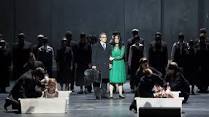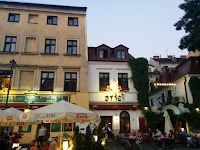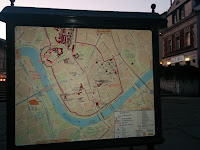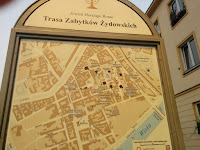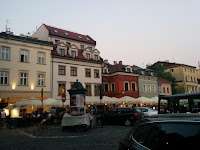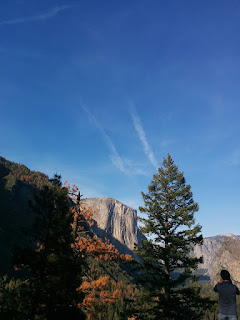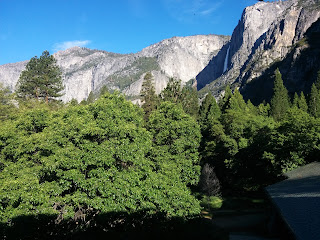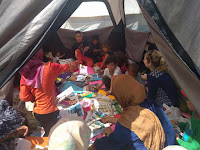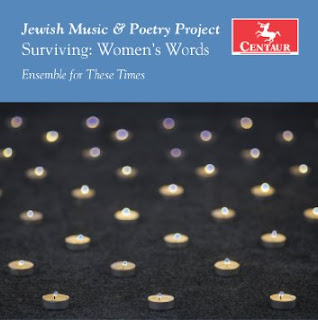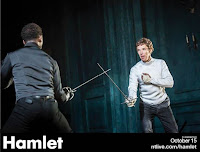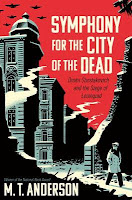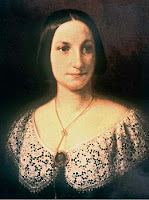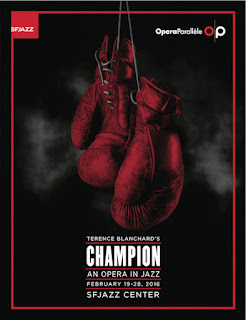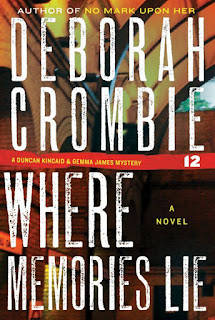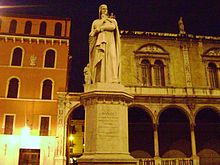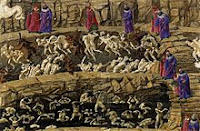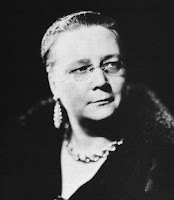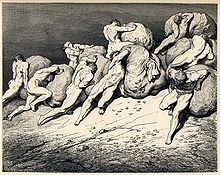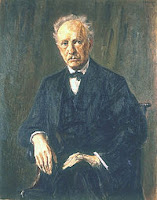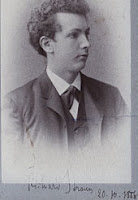from Berkeley
Dear ever-patient readers in the Blogosphere,
It's been (and continues to be) a whirlwind fall! Just to catch everyone up a wee bit, Ensemble for These Times' debut CD of music by David Garner, "Surviving: Women's Words" won a Silver Medal in the Global Music Awards, received two nice reviews (one at American Record Guide, calling the CD, "fascinating," and "compelling" and the other at Gapplegate Classical-Modern Music Reviews, calling it "extremely well done" and "Recommended."), and has been submitted for the 59th Grammy Awards--oh, my; I've been in California and Washington; and E4TT is preparing for the first of our Call for Scores concerts, 56x54 #1.
What's a 56x54 #1, you might ask? Google's latest algorithm, perhaps? Well, this past December-January, we had our first-ever Call for Scores, as you patient reader-folks might remember. We were honored (and overwhelmed) to receive 275 scores from 200 talented composers. In the end, we chose 56 fabulous works of varying lengths to perform over the next two seasons (Read more here and here) and we're excited to be performing the first set this week, along with one of David's song cycles from the CD and the world premiere of Bruce Nalezny's "Toccata," dedicated to our fab pianist, Dale Tsang.
So, for a teensy plug (Wait, isn't today's blogpost all a plug, you might also ask? Well, although I didn't mean it as such, just trying to catch up is making it go that way. Thanks again for your. already praised and much-vaunted patience.), the concert will be on Sunday, Oct. 30 at 3 p.m. at the Berkeley Piano Club. Tickets ($20/15) are available at the door or from [email protected].
And who is that woman in the green dress in E4TT's new photos above? That, everyone, is the wonderful--not to mention beautiful--cellist Anne Lerner-Wright. Anne played with us last May and June, and we're thrilled to have her with us this season!
As you can imagine, I've been living and breathing E4TT--mostly, as there's lots else going on in my life, all of it good, for which I'm immensely grateful. More over the next weeks and months as time permits.
What I'm reading: The Alphabet and the Goddess and Mercedes Lackey's Elite
What I'm listening to: Scads and scads of fabulous CDs submitted for the 59th Grammys.
What I'm working on: 56x54 #1 plus music by David Garner!
 |
| Ensemble for These Times |
It's been (and continues to be) a whirlwind fall! Just to catch everyone up a wee bit, Ensemble for These Times' debut CD of music by David Garner, "Surviving: Women's Words" won a Silver Medal in the Global Music Awards, received two nice reviews (one at American Record Guide, calling the CD, "fascinating," and "compelling" and the other at Gapplegate Classical-Modern Music Reviews, calling it "extremely well done" and "Recommended."), and has been submitted for the 59th Grammy Awards--oh, my; I've been in California and Washington; and E4TT is preparing for the first of our Call for Scores concerts, 56x54 #1.
What's a 56x54 #1, you might ask? Google's latest algorithm, perhaps? Well, this past December-January, we had our first-ever Call for Scores, as you patient reader-folks might remember. We were honored (and overwhelmed) to receive 275 scores from 200 talented composers. In the end, we chose 56 fabulous works of varying lengths to perform over the next two seasons (Read more here and here) and we're excited to be performing the first set this week, along with one of David's song cycles from the CD and the world premiere of Bruce Nalezny's "Toccata," dedicated to our fab pianist, Dale Tsang.
So, for a teensy plug (Wait, isn't today's blogpost all a plug, you might also ask? Well, although I didn't mean it as such, just trying to catch up is making it go that way. Thanks again for your. already praised and much-vaunted patience.), the concert will be on Sunday, Oct. 30 at 3 p.m. at the Berkeley Piano Club. Tickets ($20/15) are available at the door or from [email protected].
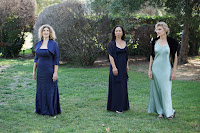 |
| Ensemble for These Times |
And who is that woman in the green dress in E4TT's new photos above? That, everyone, is the wonderful--not to mention beautiful--cellist Anne Lerner-Wright. Anne played with us last May and June, and we're thrilled to have her with us this season!
As you can imagine, I've been living and breathing E4TT--mostly, as there's lots else going on in my life, all of it good, for which I'm immensely grateful. More over the next weeks and months as time permits.
What I'm reading: The Alphabet and the Goddess and Mercedes Lackey's Elite
What I'm listening to: Scads and scads of fabulous CDs submitted for the 59th Grammys.
What I'm working on: 56x54 #1 plus music by David Garner!
0 Comments on Whirlwind Fall: Grammy Submissions and Global Music Awards as of 10/22/2016 4:06:00 PM
Add a Comment

















